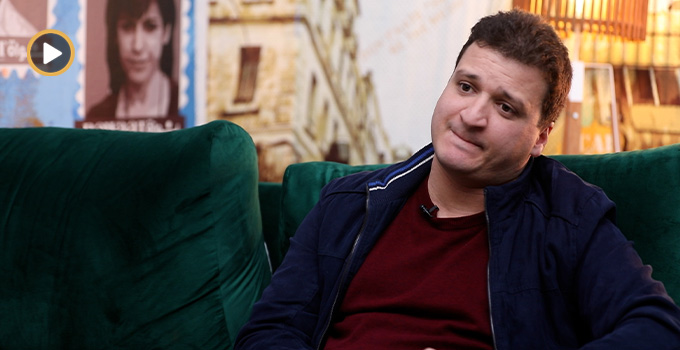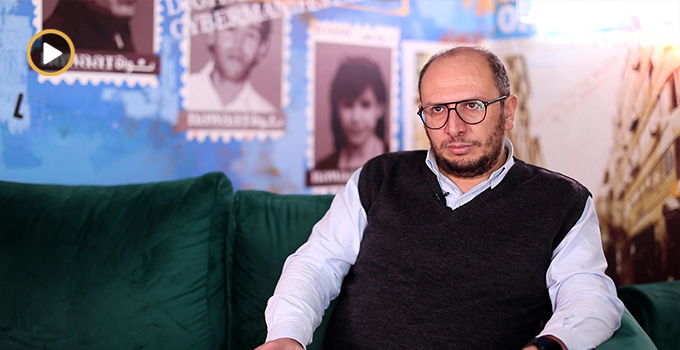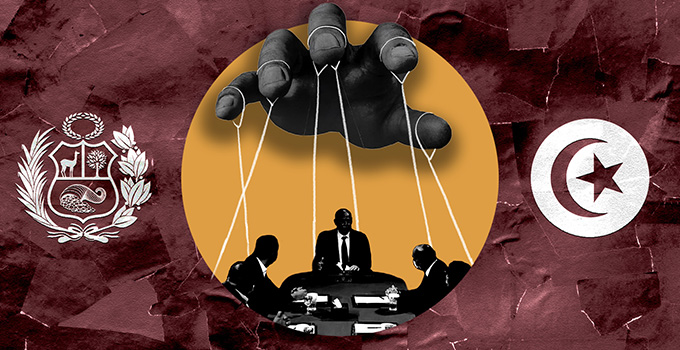
President Saied’s amendment was introduced in the form of a decree-law modifying and complementing certain provisions of the organic law relative to the Independent High Authority for Elections (ISIE). The ISIE is Tunisia’s only constitutional authority in place out of five designated by the Constitution. Prior to the dissolution of parliament, ISIE members were elected by the people’s assembly through an enhanced majority, or a minimum of 145 votes.
The decree-law changes the composition of the ISIE council and revises how its members are appointed and dismissed. As per article five of the new measure, the authority is to be composed of seven members, including « three selected by the President of the Republic from among members of previous independent high authorities for elections ». Candidates for the four other positions (three magistrates and one engineer) will be presented to the president by concerned bodies: magistrates by the judicial, financial and administrative magistracies, and the engineer by the National Center of Information Technology (CNI).
ISIE’s position unclear
While the current ISIE has yet to issue an official response, its members have expressed divergent opinions. Addressing Mosaique FM on April 22, the ISIE’s current president Nabil Bafoun commented that the authority « has collapsed » and that its independence has been compromised with the promulgation of the president’s decree-law. According to Bafoun, Kais Saied alone constitutes « the team, the referee and the goalkeeper … It is the president’s authoritative body par excellence » he warned.
ISIE Vice President Farouk Bouasker sings an entirely different tune. Speaking to the Tunis-Africa-Press (TAP) Agency, Bouasker remarked that « the decree-law includes positive points and flaws », and noted that « independence is a personal question that is subjective to each member and is not related to the method of appointment or election ». The president of the Tunisian Association for Integrity and Democracy of Elections (ATIDE), Leila Chraibi, agrees. Chraibi argues that the new members must be appointed before their competence can be evaluated. « In any case, there will be a temporary authority. It is true that the model is not perfect, but it all depends on the people who will be appointed », she told Nawaat, adding, « The former ISIE members were not independent ».
To better grasp the authority’s position on the decree-law, Nawaat reached out to ISIE member Mohamed Tlili Mansri, who confirmed that the council has not yet assembled to issue an official response. « Personally, I have no problem regarding this change in the authority’s composition. My mandate will end in 2023. But if the president is going to designate the new members, I will execute the necessary transfer procedures ».
Overlapping deadlines
According to Kais Saied’s plan, the referendum is set for 25 July 25 2022, when citizens will be called upon to vote on the constitutional draft reforms resulting from the national consultation. A special commission is to be created to examine the proposals and present them at the end of June, whereby they can finally be subjected to the referendum.
According to the electoral law, voters must be summoned by presidential decree a minimum of two months before the referendum is held. For the July 25 referendum, voters should thus be summoned by May 25. This date precedes the deadline set for the special commission—a body that has yet to be created—to complete its work.
« The dates of the referendum and legislative elections are not definitive. They must be set by a legal text », Mohamed Tlili Mnasri tells us. « We must take into account the deadlines for voter registration, updating the registers, appeals and announcing voting results… Faced with the present situation, we foresee either the promulgation of a decree-law to shorten these deadlines and maintain the date of July 25, or else we must postpone the referendum ».
Pre-July 25: ISIE plagued by internal crises
The ISIE has been plagued by internal crises for years, especially following the resignation of its former president Chafik Sarsar and two other members of the council on 9 May 2017. The resignation shook the political landscape and spurred a broad debate around the ISIE’s independence. Thus commenced a series of plenary sessions in parliament to fill the election authority’s vacant seats. The Constitution requires an enhanced majority (no less than 145 votes) to elect members of independent constitutional authorities.
On 14 November 2017, following four rounds of votes, Mohamed Tlili Mnasri was elected president of the ISIE.
On 3 June 2018, the ISIE council presented a motion before parliament to remove Mnasri from office, however, the plenary session was canceled. Mnasri presented his resignation as president and maintained his functions as an ISIE member.
On 25 July 2018, Nabil Bafoun submitted his candidacy for president of the ISIE council. After a power struggle with parliamentary blocs and several failed rounds of voting, Bafoun was elected president of the ISIE on 29 January 2019. Several months later, two ISIE members accused him of poor management of public goods. Bafoun announced the possibility of dismissing these two members on 9 November 2019.
In light of current conditions, it is difficult to anticipate Kais Saied’s actions. The prospect of an amendment to the country’s electoral law—sans consultation with concerned parties—is worrying as much within Tunisia as it is internationally.





iThere are no comments
Add yours